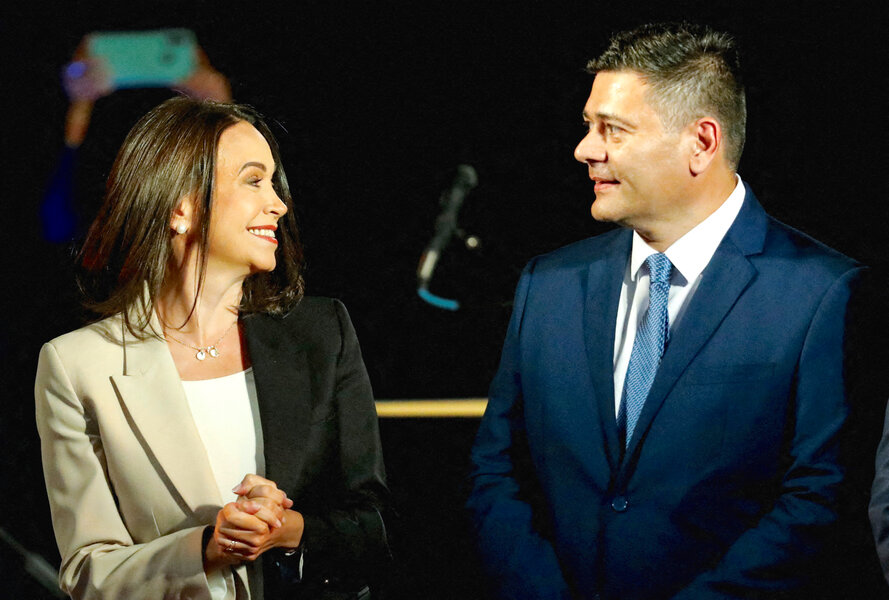Fearless citizens build Venezuela’s renewal
Loading...
One after another, societies caught under autocratic or corrupt governments keep seeking road maps back to clean, stable democracy. Now it is Venezuela’s turn. On Sunday, its people have a possible opportunity to decide who they want to challenge President Nicolás Maduro in elections next year.
The weekend ballot is only a primary, but it could be transformative. That is because it is citizen-run. A group of civil society groups has set up voting stations while educating and mobilizing voters to choose a candidate among the opposition parties.
Attempts by the government to ban certain candidates have strengthened popular resolve for change. At rallies for María Corina Machado, a Yale-educated engineer whom polls predict as the likely winner on Sunday – despite being prohibited from running by the government – supporters chant, “We’re not afraid,” and “Until the end.”
“Within Venezuela ... there is a surprising level of faith in the potential of elections to bring political change and restore democracy,” wrote Mark Feierstein, a Latin America expert at the United States Institute of Peace, in Americas Quarterly.
This democratic vigor received a boost this week when the government signed a partial pact with opposition leaders on free elections next year. The agreement follows years of stop-start international attempts to coax Mr. Maduro to embrace a return to democracy. During a decade in power, the Venezuelan autocrat was increasingly isolated for corruption and human rights violations. The U.S., under both the Obama and Trump administrations, applied ever stricter sanctions.
But geopolitics favored a thaw. Venezuela sits on the world’s largest oil reserves. It is also a major source of migration. More than 7 million of its citizens have emigrated. In just September, roughly 50,000 sought entry across the U.S. southern border. A deal signed Tuesday brought immediate benefits. The Biden administration agreed to ease embargoes on Venezuelan oil and gas for at least six months. Both sides have also engaged in a prisoner swap.
Such reciprocal gestures underscore that the strength of punitive measures like sanctions resides in their wise use. “The power and integrity of United States sanctions derives not only from our ability to sanction bad actors, but also to delist them,” a senior official said in a State Department briefing on Wednesday. “Our ultimate goal with sanctions is to bring about positive change in behavior.”
In Venezuela, that includes encouraging a climate for fair elections, safe political opposition, thriving civil society activity, and unrestricted journalism. Although skeptics doubt Mr. Maduro will allow free elections next year, voters and democracy advocates see an opening.
“There is a great opportunity, but we have to do things right,” Henrique Capriles, a leading opposition leader, told El País after he was recently banned by Mr. Maduro from participating in this weekend’s poll. “The transition in Venezuela involves a recognition of the adversary, it involves dismantling this kind of all-or-nothing existentialism that has done us a lot of damage.”
Through sticks and carrots, states try to influence each other. Yet citizens build their own nations, drawing strength from qualities of selflessness and courage. A restoration of self-government in Venezuela is underway. It has started with ordinary people organizing their democracy from the grassroots without fear.





